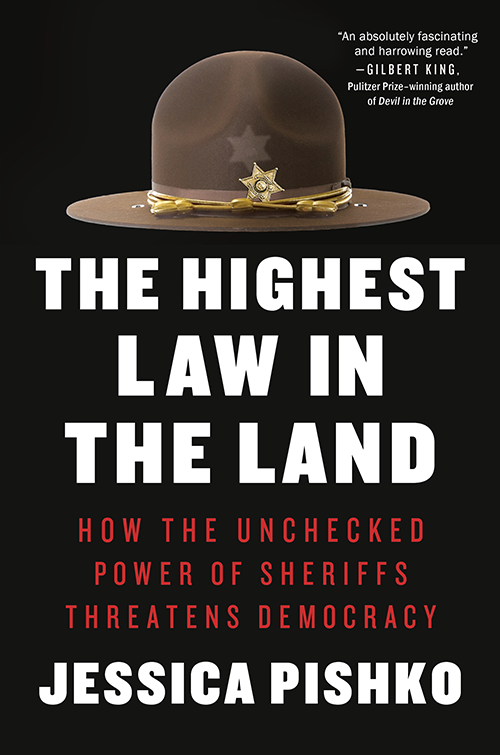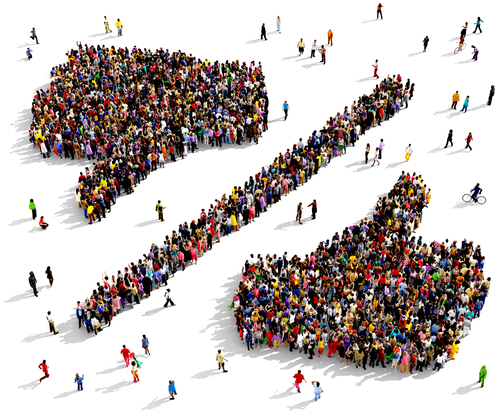Meet the sheriffs who believe they are 'The Highest Law in the Land'

The first image conjured in your mind by the word "sheriff" might be the protagonist of a Wild West movie or Robin Hood's foe, the sheriff of Nottingham. But unless you're a resident of Alaska, Connecticut, Hawaii and Rhode Island, there's likely an elected law enforcement official in your area who has that title.
In The Highest Law in the Land: How the Unchecked Power of Sheriffs Threatens Democracy, lawyer and journalist Jessica Pishko takes a deep dive into the history of this position in American life and at a far-right movement hoping to co-opt the role of sheriff to advance extreme conservative policies.
There are about 3,000 sheriffs in the United States, one per county (or county equivalent). In this episode of The Modern Law Library podcast, Pishko and the ABA Journal’s Lee Rawles discuss how the rural/urban divide impacts the demographics of sheriffs. Ninety-seven percent of the land area in the United States is considered rural, but only 20% of the people live in those rural areas.
In the 2020 census, Greene County, Alabama, had 7,730 residents and one sheriff. Cook County, Illinois, which contains the city of Chicago, had 5,275,541 residents and one sheriff. This leads to a larger proportion of sheriffs representing a rural and more conservative demographic, Pishko says.
Pishko explains the “constitutional sheriffs” movement, including its similarities to other fringe movements like the sovereign citizens. Adherents claim that sheriffs alone have the power to interpret how the Constitution and the first 10 Amendments should be enforced in their counties. They claim that state governments, the federal government, the president and the U.S. Supreme Court have no power over sheriffs, and that as elected officials, sheriffs are answerable only to their constituents.
In this episode, Pishko also describes the large role that sheriffs have in incarcerations, how their enforcement powers differ or overlap with police, and what disciplinary or oversight measures are available when a sheriff abuses their office. Pishko and Rawles also discuss the roles that sheriffs might have in local elections and whether they might have an impact on the 2024 presidential election.
In This Podcast:

Jessica Pishko. (Photo by Parker J. Pfister)
Jessica Pishko is a journalist and a lawyer with a JD from Harvard Law School and a master of fine arts degree from Columbia University. She has been reporting on the criminal legal system for a decade, with a focus on the political power of sheriffs since 2016. In addition to her newsletter Posse Comitatus, her writings have been featured in the New York Times, Politico, Rolling Stone, the Atlantic, the Appeal, Slate and Democracy Docket. She has been awarded journalism fellowships from the Pulitzer Center and Type Investigations and was a 2022 New America fellow. A longtime Texas resident, she currently lives with her family in North Carolina.



